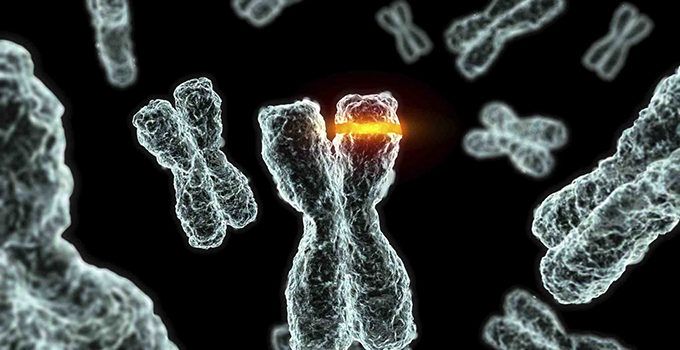

Viewpoint on Cancer: Precision Medicine and Brain Cancer
by Santosh Kesari
Precision Medicine Credited with Huge Strides in Cancer Treatment
Today anyone diagnosed with cancer should consider how a personalized approach to treatment might be of benefit to them. Cancer results from genetic changes, or mutations, that occur in certain cells causing them to grow and divide abnormally. It’s becoming clear with breast, lung, skin and other cancers—including brain cancer—that each cancer type has a unique set of biomarkers (genetic and biological characteristics) that impact treatment response.

We can now analyze each patient’s tumor and identify all the known biomarkers that they have. We can then use that information to give the right drug to the right patient at the right time. This is called personalized or precision medicine.
Over the last 10 years this approach has become more accepted and it has already changed the way we treat certain diseases, like breast cancer with the HER2 mutation, lung cancer with the EGFR mutation and melanoma with BRAF mutation. These mutations can be specifically targeted and now determine the first course of treatment.
We’ve entered an era where we can test for about 600 genes that cover all the known cancer mutations. At Pacific Brain Tumor Center at Pacific Neuroscience Institute, we routinely test for all these mutations including those that occur in a other cancer types. The reason is that a small percentage of brain cancer patients will, for example, have a mutation that is usually found in another cancer such as breast cancer or melanoma. Treatment is no longer limited or based on the site of cancer origin and through our comprehensive screening methodology we can successfully treat even those brain cancer patients.
Before cellular biomarkers were identified, patients were all treated in the same way. Now that we have biomarkers and drugs that target those biomarkers, this has changed the outlook for those diseases. We can no longer treat these patients without using biomarkers. It’s unacceptable. In other diseases, like colon cancer and bladder cancer, we’re finding that biomarkers are just as important. More markers are being discovered for other cancers including immune biomarkers that predict a patient’s response to immune therapies.
In fact, for the first time, a drug was approved based on a new biomarker called Tumor Mutational Load, which takes into account all the mutations in a tumor and predicts response to immune therapies for any cancer with high mutational load. This is Precision Immunotherapy.
 Any cancer patient can have biomarker testing performed on tissue saved from the tumor. However, in the last five years there have been advances in developing blood biomarker testing, called liquid biopsy, to detect the DNA secreted into the blood by tumor cells. With the sensitive gene sequencing tests that we have at the Saint John’s Cancer Institute, we can identify the same markers in blood that we find in the tumor tissue. This is also revolutionizing our ability to detect cancer and monitor patients without invasive biopsies.
Any cancer patient can have biomarker testing performed on tissue saved from the tumor. However, in the last five years there have been advances in developing blood biomarker testing, called liquid biopsy, to detect the DNA secreted into the blood by tumor cells. With the sensitive gene sequencing tests that we have at the Saint John’s Cancer Institute, we can identify the same markers in blood that we find in the tumor tissue. This is also revolutionizing our ability to detect cancer and monitor patients without invasive biopsies.
I’ve been studying cancer for 23 years and focusing on brain tumors in particular. In the next five years we hope to improve survival for brain cancer patients and I’m excited and positive that we’re going to make huge strides in understanding brain cancer, one of the worst of all cancers.
Adapted from article in Innovations, Winter 2017 Issue published by Saint John’s Cancer Institute

Santosh Kesari, MD, PhD, is Director of Neuro-oncology at Pacific Neuroscience Institute and Chair and Professor, Department of Translational Neurosciences and Neurotherapeutics, Saint John’s Cancer Institute at Providence Saint John’s Health Center. He is a world leader in the innovative treatment of all types of malignant brain tumors. Dr. Kesari and his team conduct leading-edge clinical trials in immunotherapy and biomarker-based brain tumor therapies.
About the Author

Santosh Kesari
Santosh Kesari, MD, PhD, is Director of Neuro-oncology at Pacific Neuroscience Institute and Chair and Professor, Department of Translational Neurosciences and Neurotherapeutics, Saint John’s Cancer Institute at Providence Saint John’s Health Center. He is a world leader in the innovative treatment of all types of malignant brain tumors. Dr. Kesari and his team conduct leading-edge clinical trials in immunotherapy and biomarker-based brain tumor therapies.
Last updated: January 11th, 2018